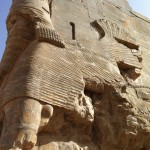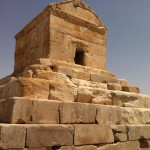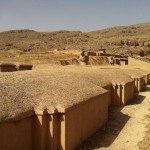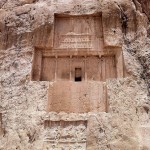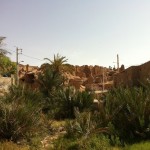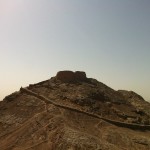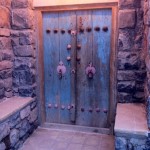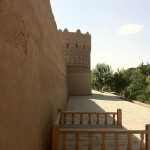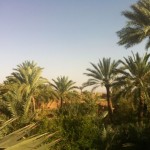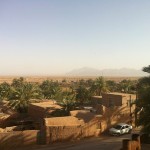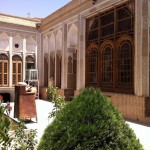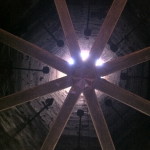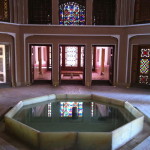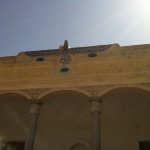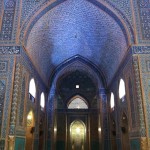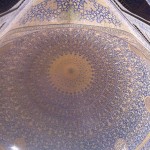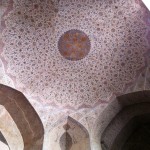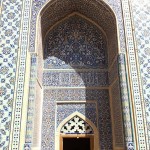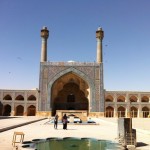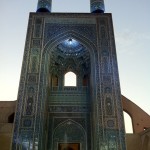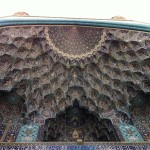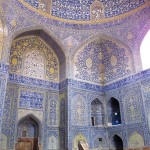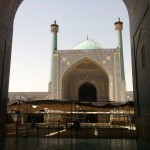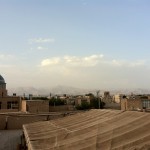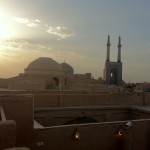In an effort to define who we are, we focus on that which separates us from one another. We emphasise the qualities that make us unique, an individual; a way to stand out and say here I am.
This pursuit of that which defines us, or separates us, often leads us down the path of isolation, alienation and prejudice. Prejudice, where judgment is made on that which differs rather than that which connects us, our common ground. There is no other place in the world that experiences this prejudice like the Middle East.
Prejudice – to form an opinion, a preconceived judgment, often unfavourable and unfounded, towards another not based on, or prior to, personal experience.
Unlike many, the Middle East has always been of interest to me. Much of human history evolved from here, with ancient Mesopotamia and Persia. But beyond that, I am often attracted to the unconventional and the misunderstood, perhaps because these places are representations of myself.
Perhaps also, it is often regarded as where the East meets the West, the West meets the East. Of Chinese heritage, born in Borneo and brought up in Australia, I have adopted much of western ideology without ever renouncing my eastern philosophy, where the West and East meet in me.
Iran is an incredible place. Prior to the Arab invasion in the 7th century AD, it was a Zoroastrian state. Zoroastrianism is one of the oldest documented religions. It is the birthplace of duality, the concept of good and evil, of heaven and hell. Arguably, Islam, Judaism and Christianity are believed to have derived from it. Since Arab influence post the 7th century and, more recently, the Islamic revolution in 1979, it is now a Shiite-Muslim state decorated with beautiful mosques. However, Iran still continues to celebrate some of its ancient Zoroastrian beliefs alongside their strict practice of Islam. Many of the last remaining Zoroastrians on Earth continue to live in Iran, and evidence of its religion, held in its fire temples and towers of silence remains, at least for the moment, in Yazd.
Iran is a conservative country, in the sense that it attempts to protect itself from external influences, namely western ideals. However the recent election of Hassan Rouhani in 2013 highlights the open-minded and progressive nature of the Iranians. Iran is an interesting place where women are covered in public, no alcohol can be bought, and internet access is strictly regulated by the government; but behind closed doors, women lay in their courtyards sunbaking, people drink homebrewed wine and spirits at house parties, making sure to bathe, change their clothes and keep up adequate oral hygiene to ensure that the moral police can’t catch the smell of alcohol on them as they return to their homes, and youths harness VPN to set up Facebook accounts beyond the grasp of government regulation.
Most striking in Iran, is not only the beauty of its ancient and unique architecture, but also the extremely hospitable and curious Iranians. With media controlled by the government and propaganda against western culture a prevalent theme, Iranians themselves can see through this charade and have no concerns in approaching “westerners”, inviting us into their homes, to get the truth about “western life” straight from the horse’s mouth. If you are not a fan of spending your time with locals, don’t go to Iran.
Saba Museum is a memorial to Abol-Hassan Saba, a great Iranian musician, composer and violinist. His father, Hossein Saba, is also an influential figure in traditional and instrumental Persian music. During a visit to Saba Museum, which is also Abol-Hassan Saba’s former home, I met the caretaker, who was also a musical prodigy. We shared an interest in music and he was curious to hear of my knowledge of music, which I suspected was not a common occurrence in Iranian women. He invited me down into the basement of the complex, into his living quarters, where he offered me numerous cups of tea and a mountain of sugar to accompany it. Iranians are notorious sweet-tooths. We sat and talked for a while before he offered to play the seitar for me. He reached for his bespoke and beautifully crafted instrument and started to play. I listened to him for what felt like too short a time but also an eternity. I was captivated. As it began to get dark, I thanked him for his generous hospitality and he thanked me in return. As a parting gift, I handed over a novelty koala and he handed me a wonderful book by Hafiz, an adored Iranian poet, conveniently translated into English.
Interestingly, it was through numerous discussions about western life and culture with Iranians that I came to realise I had my own prejudices. Growing up surrounded by left-wing activists and watching documentaries by Michael Moore, I wasn’t particularly fond of the Unites States of America. I had never been there or had any desire to go. In my biased depiction of a capitalist and consumerist White America full of misinformed, sub-intelligent and dogmatic Americans, I had failed to see that perhaps it too was a misunderstood country, just as Iran is by many. I had judged America and Americans based on my prejudice and if this wasn’t fair for Iran, it shouldn’t be for the USA. Now, I want to discover it for myself, experience it as a blank canvas without bias or prejudice. The USA has finally made it on my “to travel” list.
This trip to Iran has been astonishingly insightful. Perhaps in my own effort to define myself, I had forgotten that we all have a common ground, we are all a little misunderstood.
For those of you who will never set foot in Iran, here is a little of what you are missing..
